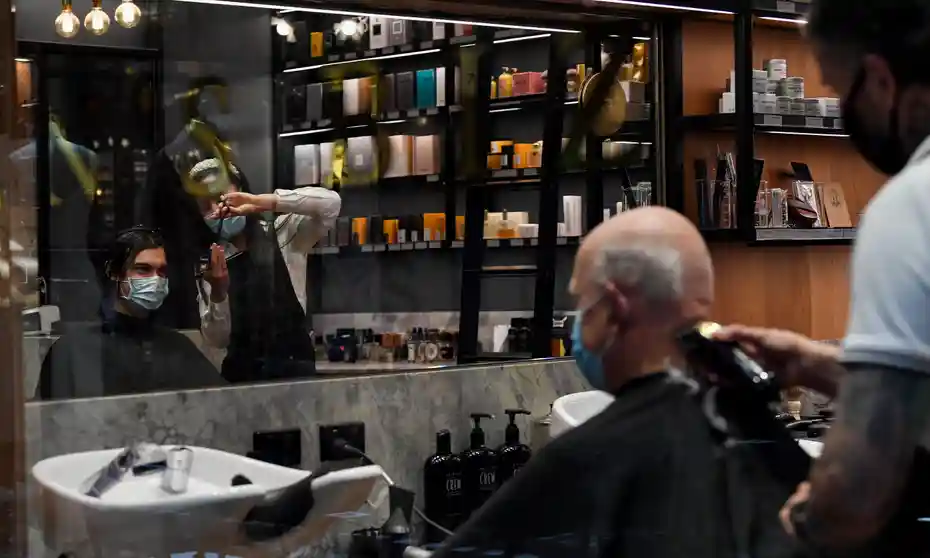Some small businesses could be wiped out without immediate government help due to the Omicron outbreak, industry figures say, with hairdressers reporting up to 60% staff absenteeism.
The chief executive of the Australian Hairdressing Council, Sandy Chong, said seven of the 13 staff at her salon in the New South Wales city of Newcastle had recently tested positive for the virus, swelling sick leave payments at a time when wary clients were staying away.
“Paying for the personal leave is such a stress for every small business owner,” Chong said. She has operated her salon for 36 years and never previously encountered such a squeeze.
Turnover in the fortnight prior to Christmas was “just terrible” – down half on a normal year – while revenue declined two-thirds for the first week of 2022.
“One of our members in Queensland has 40 staff, and she had all of them off except six. So she had to close down three salons,” Chong said. “Western Australia members are … absolutely panicking as to what’s going to happen when their borders lift.”
Hairdressers were not among the industries deemed last week by the national cabinet to be essential. As such, staff who had close contact with a Covid case were not granted a shorter isolation period before returning to work. In Victoria, a mandate requiring hairdressers to be at least double vaccination was also making it harder for salons and other businesses, Chong said.
Signs that companies are under strain are mounting. A survey of 2,000 members over three days earlier this month by the lobby group Business NSW found 40% “don’t have enough cashflow for the next three months”.
“Short-term targeted support for those businesses and staff that are
highly impacted is a must,” Business NSW’s chief executive, Daniel Hunter, said.
“Unlike previous surveys throughout 2021, where business owners felt the next quarter would get better, that isn’t the case this time as there are no government support packages in place.”
Small firms are more exposed to staff shortages than bigger ones because “they don’t have the luxury of moving workers from one cafe, say, to another one”, the head of the Council of Small Business Organisations Australia, Alexi Boyd, said.

